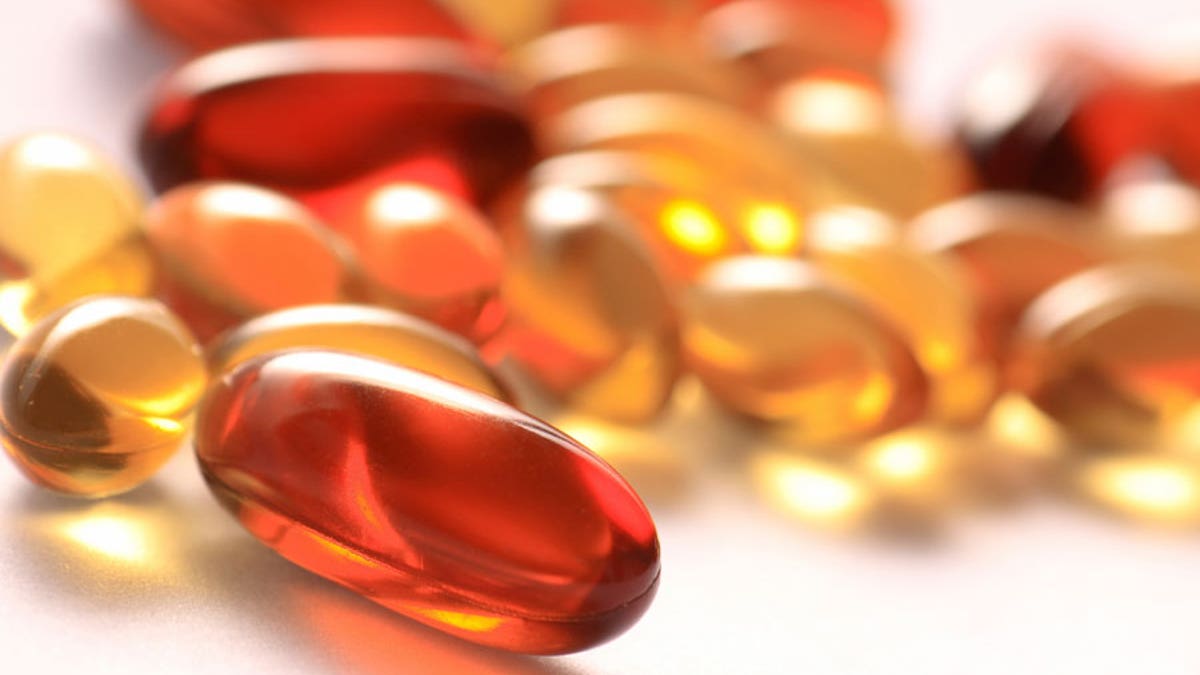
(iStock)
We’re usually worried about getting enough vitamins, but is it possible to ever get too much?
Turns out, it is: Dr. Olveen Carrasquillo, chief of internal medicine at the University of Miami Health System, told Fox News that people can often overdose on certain fat-soluble vitamins if they use supplements. While it’s hard to overdose on such vitamins by just eating a natural, well-balanced diet, vitamin supplements can lead to extremely high, toxic levels of these fat-soluble vitamins, Carrasquillo said.
“The problem is that those vitamins are not easily cleared out by the kidney, so they can accumulate faster,” he explained.
6 WAYS TO LOSE MORE WEIGHT AS YOU AGE
Overdosing becomes even riskier when you try to supplement with specific vitamins, rather than an overall multivitamin recommended by your physician or dietitian, Krista Mathews, a dietitian at The Ohio State University Wexner Medical Center, told Fox News.
Fox News spoke with Carrasquillo and Mathews about those fat-soluble vitamins you should be most careful about overdosing on:
1. Vitamin A
Vitamin A — found in foods like sweet potatoes and eggs — is connected to the central nervous system, so an overdose of this vitamin could lead to problems like confusion and lethargy, Carrasquillo said. It could also have adverse effects on your heart and bone health, Mathews added.
6 TIPS FOR MAKING CARBS A HEALTHY PART OF YOUR DIET
2. Vitamin D
Many adults don’t consume enough foods rich in vitamin D, like cheese, milk and other dairy, Mathews said, and so should take a multivitamin if their physician recommends it.
However, as Vitamin D is involved in controlling the body’s metabolism of calcium, an excess of Vitamin D can also lead to high calcium levels in the body, Carrasquillo said. That, in turn, can lead to problems such as dehydration, excess urination, kidney stones, confusion, and more, he said.
3. Vitamin E
Vitamin E, which is in foods like almonds and spinach, can, if taken in excess, interfere with the absorption of certain vitamins and lead to increased bleeding, Carrasquillo said. He noted that while many people believe Vitamin E can help boost things like sexual health, there’s really no need for supplementing your diet with this vitamin.
FOLLOW US ON FACEBOOK FOR MORE FOX LIFESTYLE NEWS
4. Vitamin K
Vitamin K, which you can get naturally from kale and broccoli, can affect the liver, and should never be taken as a supplement if a patient is on blood thinners, Carrasquillo said. That’s because Vitamin K is actually used to reverse an overdose of blood thinners and helps control bleeding.








































